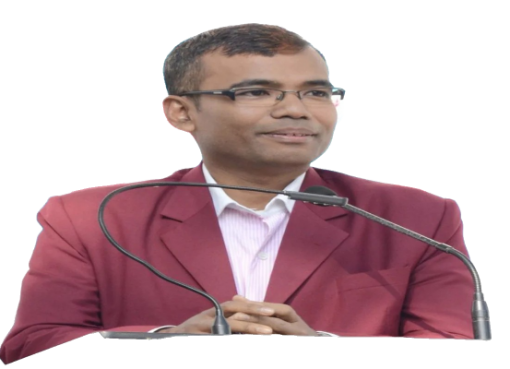Science Education in India – Some Stray Thoughts
“There is only one solution for India’s economic problems and that is science, more science and still more science.”- C.V. Raman
“It is science alone that can solve the problems of hunger and poverty, of insanitation and malnutrition, of illiteracy and obscurantism of superstition and deadening customs, of rigid traditions and blind beliefs, of vast resources going to waste of a rich country inhabited by starving millions.” – Nehru (1946)
History of science education in India dates back to over 2,600 years. Taxila (6th century BC) one of the earliest universities in the world, attracted students from across the continents. Major subjects taught at Taxila at that time included mathematics, astronomy, medicine, surgery and metallurgy. The development of modern science in India is an implant by the British. In 1857, the universities of Bombay, Calcutta and Madras were established following the model of London University. In spite of the extreme limitations of the colonial British rule, globally competitive scientific research was carried out by a few scientists like C.V. Raman, M.N. Saha, S.N. Bose, D.N. Wadia, P.C. Mahalanobis, S. R. Kashyap, Birbal Sahni, S. Ramanujan, S. Chandrashekhar, etc.
Following India’s independence, Prime Minister Nehru realized the crucial importance of science for economic growth and social transformation. The constitutional amendment of 1976 placed education including science and technology education in the concurrent list. The UGC and the All India Council for Technical Education were established by acts of parliament. Policy developments have been largely guided by the Scientific Policy Resolution of 1958 and Technology Policy Resolution of 1968. The National Commission on Education of 1964 chaired by D.S. Kothari resulted in the preparation of the National Policy of Education in 1968. The policies and plans suggested by the Commission have helped India to develop a vast infrastructure for higher Science & Technology education. However, it is unfortunate to note that inadequate understanding of the spirit of the recommendations and failure to implement the policies adopted in true spirit have led to over-centralization of authority, bureaucratization, and over-dependence of higher education on government support and intervention. The system has become too large and colossal to ensure quality and accountability.
If we look at the evolution of school science in India, we see a clear trend of including more and more content – overwhelmingly in the form of factual information – in the syllabus. Laboratories have no needed infrastructure, and even demonstrations, once common, are now confined to elite schools alone. Thus the factual information that dominates the syllabi is not supported by any kind of activity, which can make it conceivable or even comprehensible. Students therefore have no option but to memorize the facts. The consequence of this is that students find science not only difficult but also boring. We need to change the entire mind-set of our people into believing that a career in science is also a financially viable, attractive and challenging option with an ever-increasing demand for it. We need to highlight scientific discoveries, achievers and their achievements, success stories and the impact of science on every sphere of human life, and emphasize the prospects of lucrative jobs in this profession.
Strengthening Education & Research in Universities
The following are a few suggestions put forward to be strictly adopted and implemented as policies to immediately streamline the higher education sector in the country:
- Appointments as University / College faculty should be made purely on the basis of merit.
- Selected faculty (purely based on performance) should be provided core facilities, and funding for setting up their own research lab, and freedom to apply for grants / collaborations.
- A common, subject-wise entrance test (on the lines of UGC-CSIR SET-NET) should be designed and made mandatory at the state level, for admission into all PG courses.
- Universities should design and continuously update undergraduate curricula, with mandatory inputs from academia and industry, for developing conceptual understanding, analytical and critical thinking and practical skills.
- Every institution should have an outreach programme, wherein it is mandatory for every Ph.D. student to contribute towards undergraduate education for at least two weeks in a year.
Nodal Centres should be set up across the country for Science Education, at least five per State, for focusing on popularization of science, increasing awareness, training and generating opportunities for growth.
- Set up mobile labs for schools/colleges in rural areas.
- Provide special opportunities for women scientists/retired teaching, scientific and technical staff to work part-time/from home on activities like science writing.
- Set up incubation centres for translating laboratory innovation into industrial production and marketing.
- Initiate ‘Earn while you learn’ schemes for students at UG and PG levels.
- It should be mandatory for every science related industry/service sector, which has been given Government subsidies to contribute towards science education.
- Government bodies should guarantee at least one year post-doc salary and funding for research, as a bridge between obtaining a Ph.D. degree and securing a regular job.
- In the line of research fellowship, Post-doctoral Senior Teaching Fellowship should be introduced for encouraging some research scientists to dedicate two years to UG and PG teaching.
References:
Anon (2017). Science Education, Chapter IV. In: Pursuit and Promotion of Science, IISc, http://www.iisc.ernet.in/insa/ch4.pdf (Retrieved on 30.10.2018).
Agarwal, P. (2006). Higher Education in India: The Need for Change, Working Paper No. 180, Indian Council for Research on International Economic Relations. http://www.icrier.org/pdf/ICRIER_WP180__Higher_Education_in_India_.pdf. (Retrieved on 30.10.2018).
Dr. Probodh Borah
Professor & Head,
Department of Animal Biotechnology
College of Veterinary Science, AAU
Khanapara, Guwahati-781022


